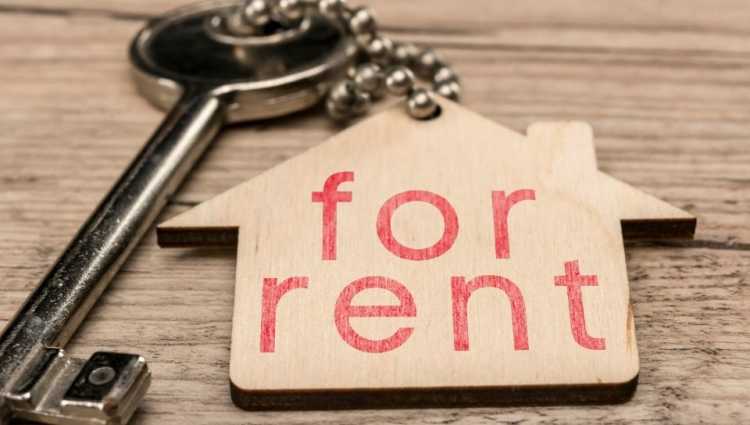Should we rent out our Home? Advantages of being a landlord
by Becca Stewart - January 26th, 2022

It’s a dilemma that military families face with each PCS: rent or own? If you purchase a property at one base, what happens when you move again? Instead of selling your home with each PCS, you can build long-term wealth by renting it out.
But is renting out your property always a good idea? Or is selling your home the better decision for your family? We’re breaking down the advantages (and disadvantages) of being a landlord.
Homeownership: the long-term wealth building strategy
You’ve probably heard that homeownership is a good investment. While that is often the case, real estate investment requires you to think long-term. It’s unlikely you’ll make much money from selling your home after only a few years. Likewise, renting out your home isn’t a big monthly moneymaker.
The real money comes later on. If you choose to rent out your home, your tenants essentially pay your mortgage payment every month. As markets expand, your mortgage stays the same, but rent prices in that market may increase. Every month, you can either pocket the difference or pay down your mortgage faster.
Eventually, you’ll pay off the remaining mortgage, leaving you with a property that you own free and clear. All this while never (or rarely) paying the mortgage payment out of your own pocket. Typically, home prices increase several percent every year. So, in 15 years, you could have a paid-off mortgage and a home that has increased in value, creating an excellent financial nest egg.
Many military families use these investment properties as retirement income, either selling the properties for a profit or renting them for the monthly revenue.
Should we sell or rent out our home?
Military families move often, so this is a common question. There is no right or wrong answer; each family’s situation is different.
Renting out your home can be a lucrative long-term financial plan if you’re willing to stay the course. As home and rental prices rise and fall, you’ll be building equity in your property. When you retire, you can either sell that property or continue to earn monthly income from rental payments. After your mortgage is paid in full, every rent payment is money in the bank.
However, being a landlord isn’t without its challenges. Because you still own the property, you are financially responsible for necessary repairs, property taxes, HOA fees, and any other expenses that might arise. Rental properties typically aren’t a great source of monthly income until the mortgage is paid off. Any money beyond your mortgage payment will probably go to a property manager, maintenance costs, or unexpected repairs.
If you are willing to navigate the difficulties along the way and have the capital to support owning a rental property, renting out your home may be a viable option. But if dealing with tenants and unexpected expenses isn’t your thing, selling your home might be the way to go.
Getting started: 5 tips to building wealth through real estate
Plan ahead before you take the plunge into the landlord deep end. While real estate investment isn’t always easy, there are ways to set yourself up for success.
1. Only invest what you can afford.
Think about your monthly budget before deciding whether you can rent out your home. Can you afford to pay the mortgage on this property if you don’t get renters right away? Will you be able to pay the mortgage on your rental property AND the payment on your current home? Do you have enough savings set aside for unexpected expenses, upgrades, and taxes?
If you already live paycheck to paycheck, renting out your home might not be a good idea. Never invest in a property that stretches your budget too thin.
2. Buy a home with tenants in mind.
If renting out your home is your long-term goal, keep that in mind when purchasing the property initially. Most military families purchase a home, live in that home for the duration of their assignment, and then rent the home after they PCS.
While it’s important to buy a home that suits your needs, you should also consider future tenants when purchasing a property. For instance, houses on several acres of property will be difficult for most renters to maintain. Specialized equipment, like swimming pools, might deter potential renters, making it difficult to fill your property. And buying a more affordable home means the rent will be more affordable, too, therefore increasing the chances of getting long-term renters.
3. Know your tax advantages.
There are several tax advantages to owning a home. However, some of these tax advantages only apply to owners who have lived in the house for at least two years. To make sure you’re getting the most out of your rental property, contact a real estate tax professional.
4. Factor in unexpected costs.
Homeownership always comes with unexpected costs. Air conditioning systems break. Water heaters fail. Appliances die. And yes, sometimes tenants put holes in walls, break windows, or trash your property, leaving you to clean up the mess.
Before renting out your home, be sure to factor these costs into the rent.
5. Consider property management.
It is possible to manage your property without a management company. However, as a military family, you may be several states or even a continent away from your rental property. A property management company will screen potential tenants, complete necessary paperwork, handle maintenance requests, and even deal with problem tenants on your behalf if necessary.
Many property management companies work for a flat percentage of the property’s rent. And they’re very often worth the cost.
Homeownership can be an excellent investment for those who hold a property long-term. Military families typically don’t have the luxury of staying in one place long enough to pay off a mortgage and build equity. That leaves us with one option: becoming landlords and renting out our properties.
Thankfully, the military network is vast and strong. It’s relatively easy to find military renters to fill vacant properties. A quick online search will lead you to several options for military homeowners looking to rent to other military families.








